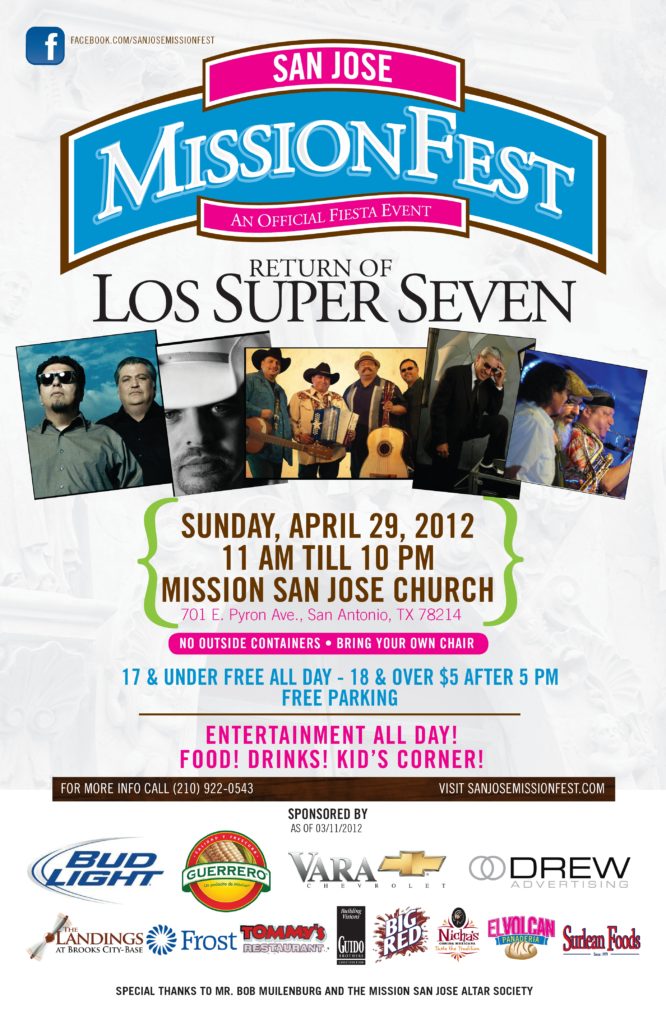We have a case at the intersection of band names and zombie marks, clearly one for which the melody lingers on.
In 1997 there was a jam session at SXSW that included the band Los Lobos. In 1998 some of the SXSW performers created a Grammy award-winning album called Los Super Seven; petitioner Daniel Goodman was executive producer and respondent Steven Berlin, a member of Los Lobos, was the sole producer on it. Goodman went on to create two more albums by the band “Los Super Seven,” one in 2001 and one in 2005, although each album had different band members. Goodman was the executive producer on all three albums but Berlin was the producer on only the first two. In 2000 Goodman registered the LOS SUPER SEVEN trademark for both records and entertainment services but the registrations lapsed in 2008 and 2010 for failure to file the Section 8 affidavit.
In 2010 Goodman learned that Berlin was promoting concerts to be performed by “Los Super Seven” and sent Berlin a cease and desist letter (p. 25). A few months later Berlin filed an application to register LOS SUPER SEVEN for entertainment services, which registered in 2012. Goodman filed a petition to cancel the registration in 2013.

Based on these facts I suspect you would jump to the conclusion that Goodman succeeded on the petition. Goodman was the only common thread through the three original albums and had registered the trademark. Berlin was clearly leveraging the original “Los Super Seven” by promoting the concert as the “return of Los Super Seven.” But you’d be wrong.
There are probably two pieces that are critical to a finding in favor of Berlin and the consequent dismissal of the petition to cancel. First was Goodman’s failure to oppose the Berlin application, allowing Berlin’s trademark to register. This gave Berlin a prima facie presumption that he is the owner of the trademark. Thus, rather than an even playing field, Goodman has to establish by a preponderence of the evidence that instead he had prior rights in the mark.
Which he couldn’t do. Notably, the Board agreed that Goodman was associated with the mark and, despite some evidence in his agreement with RCA to the contrary, the Board accepted arguendo that Goodman had been the owner. However, look at the timing – the last album was in 2005. The Board noted that
subsequent to release of the third “Los Super Seven” album in 2005, there is very little, if any, evidence showing Petitioner was involved with either musical recordings or entertainment services offered under the mark LOS SUPER SEVEN. As noted, supra, Petitioner’s two registrations were cancelled by the Office for either a failure to renew or failure to file an affidavit of continued use (or excusable nonuse). There is also no evidence corroborating Petitioner’s blanket assertions that his failure to maintain the registrations was due to “inadvertence and mistake”; or that the three “Los Super Seven” albums are still “commercially available”; or that he is in the “planning stages” of a fourth “Los Super Seven” album that “will be supported by a promotional tour.” Indeed, there are no statements from third parties or documentary evidence to indicate that Petitioner was involved in promoting either live performances or musical recordings under the mark LOS SUPER SEVEN since 2005.
Section 45 of the Trademark Act provides that a mark is abandoned when “its use has been discontinued with intent not to resume use. Nonuse for three consecutive years shall be prima facie evidence of abandonment.” 15 U.S.C. § 1127. Inasmuch as Petitioner’s registrations were cancelled in 2008 and 2010 and to the extent he is now relying on common law rights in the mark, we note that the statutory presumption of abandonment applies not only to registered marks but also “to a party’s unregistered common-law mark.” Miller Brewing Company v. Oland’s Breweries [1971] Limited, 548 F.2d 349, 192 USPQ 266, 267 (CCPA 1976). In this case, a presumption of abandonment has been created based on Petitioner’s failure to account for any trademark use since 2005. Petitioner has not rebutted this presumption. Specifically, Petitioner has not only failed to introduce sufficient evidence that he was actually using the mark in the three years since 2005, but he has not established that the period of nonuse was excusable and that he had an intent to resume use of the mark.
Thus even if Goodman had rights in the mark in the past, he abandoned them and there could be no present day likelihood of confusion.
Goodman v. Berlin, Cancellation No. 92057241 (TTAB Oct. 12, 2016). HT to John Welch, TTABlogger extraordinaire for the decision.

This work is licensed under a Creative Commons Attribution-NoDerivatives 4.0 International License.

Leave a Reply